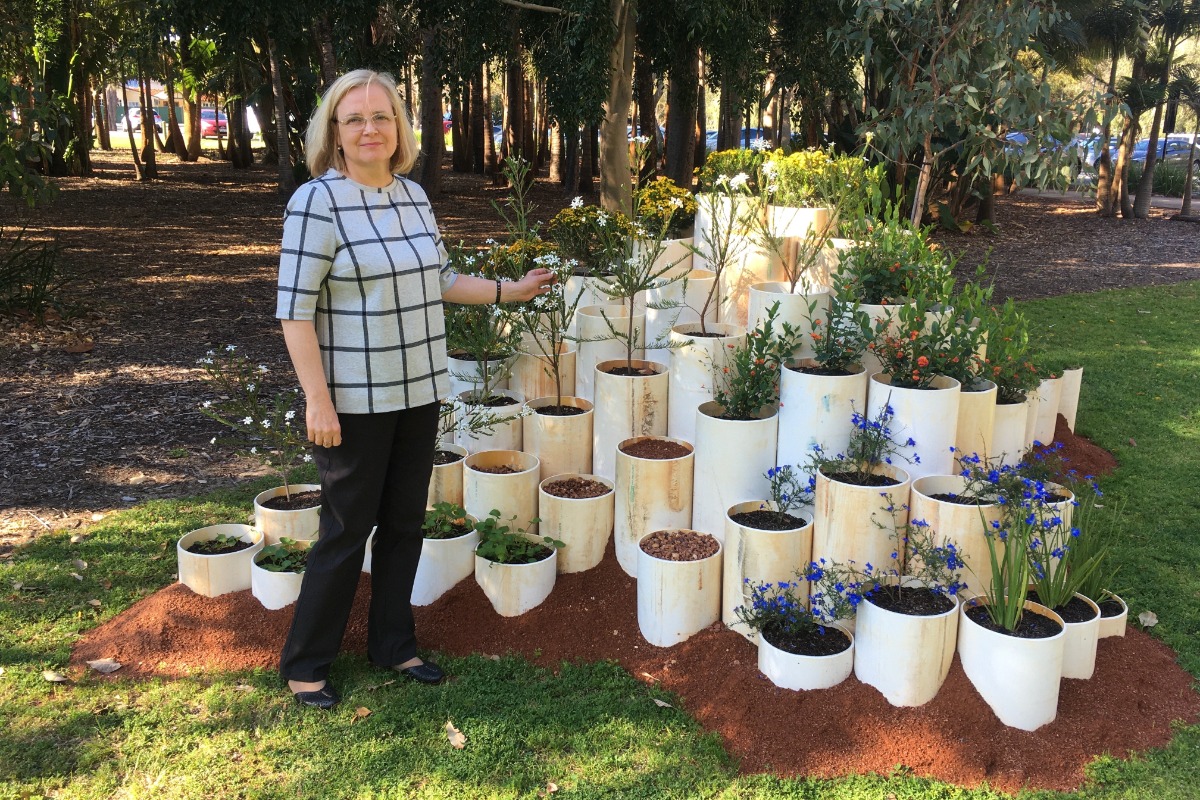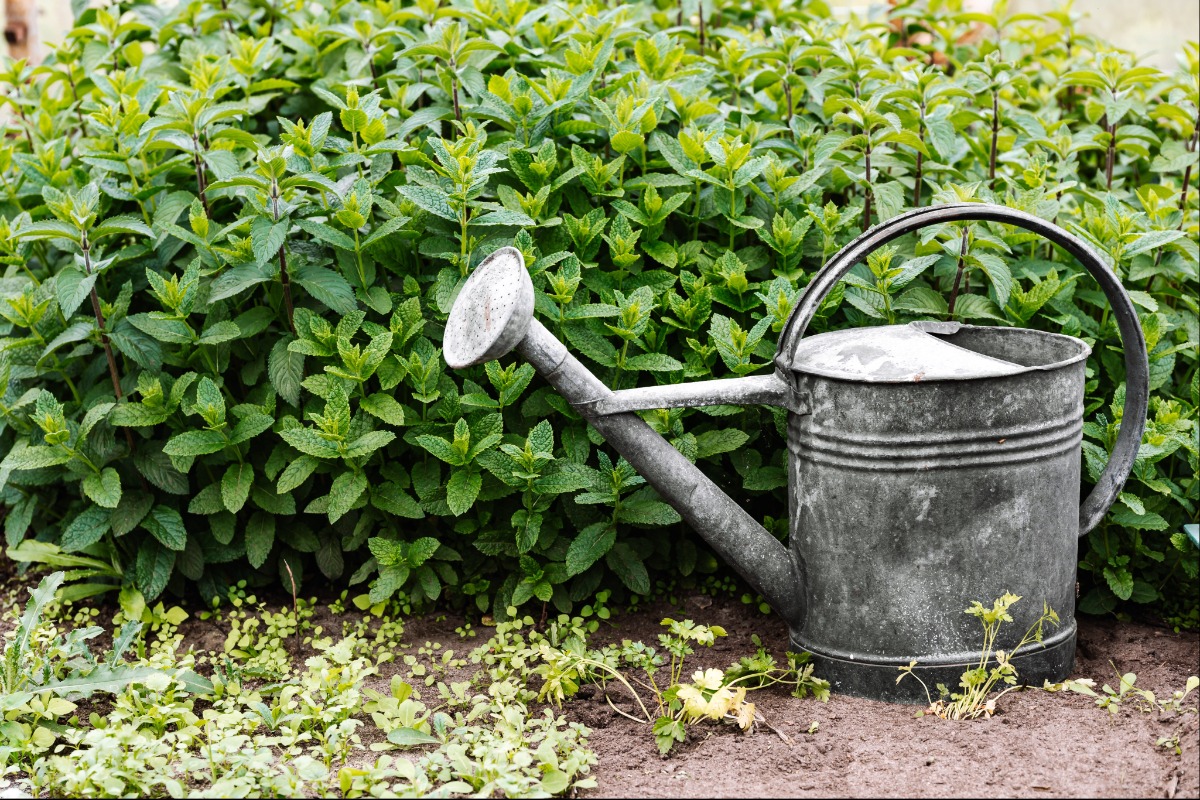In our hot, dry climate, it is difficult to maintain a good-looking garden – whether you are planning a new one or conserving your current outdoor space, the trick is to keep things green without draining our dams (and your bank account, through water bills).
Maria Ignatieva, Professor of Landscape Architecture at UWA's School of Design said efficient garden design and irrigation could significantly reduce urban water use.
"Appropriate choice and design of garden elements are essential for creating waterwise gardens," Professor Ignatieva said.
Here are Maria's top tips for a sustainable green space:
1) Design with water in mind
If you are still designing your garden, think about water use. Create clusters of plants that have similar water and maintenance requirements to conserve water.
Areas that require a lot of resources include garden beds such as vegetable, herb and flower gardens.
Medium resource areas include lawns, exotic trees and shrubs.
Low resource areas include native trees and shrubs.
Gardens could include a mix of group plantings such as low, medium and tall shrubs, trees, paved areas, garden beds and lawn, depending on the layout of your property and your lifestyle.

2) Select suitable species
Choose waterwise native and drought-tolerant plants. In the first couple of weeks, when you establish the garden, they will need some watering, but then native plants will require very little water. We have unique native flora in WA, with plenty of beautiful plants. In addition, native plants attract and support local wildlife.
It is also important to choose plants suitable for your suburb, and remember most native plants love exposed full-sun to part-shade locations.
3) Start with the soil
Preparing the soil is key to creating a sustainable garden. You need to have a mulch to keep the moisture and avoid weeds competing for nutrients.
Using a quality soil wetter for lawns is also important as soils in Perth are mostly sandy and hydrophobic, due to the city lying on ancient sand dunes.
4)Keeping turf
Lawn is important for recreation and can play a role in cooling the environment during summer. But it is important to make sure your turf species suits the climate. In Perth, the most suitable species are kikuyu grass (Pennisetum clandestinum), couch grass (Cynodon dactylon), and buffalo grass (Stenotaphrum secundatum).
Find out what height your lawn should be and do not mow it too much. If your lawn is too short, it will struggle, and you will need to give it more fertiliser for food.
If you have shady trees, grass will not grow under them because it needs sun, so go for other groundcovers. There are a lot of good groundcovers, including native species that can also be used in gardens. For example, native Running Postman (Kennedia prostrata) can handle full-sun to part-shade locations.
5) Water wisely
Make sure you have a good irrigation system and fix anything that is broken. An irrigation specialist can advise on the most appropriate sprinklers, and help with installation, repairs and maintenance.
It is important you water only on allocated days, and either in the early morning or late afternoon – watering in the hottest part of the day is a major cause of water wastage. Water out of direct sun so you lose less water from the plant leaves and by evaporation from the soil.

There is plenty of advice out there– the Water Corporation in particular has lots of information on water-sensitive gardening, and garden shops and nurseries can give you tips on how to handle your plants.
It is very difficult to have complete sustainability in an urban environment, especially in summer when it is so hot. So at least try to be more water-sensitive and use smart practices like the right irrigation, the right time of watering, and a scientific, practical approach.
By following these tips you are on your way to a healthy, waterwise garden and it will also help you save on your water bills.






